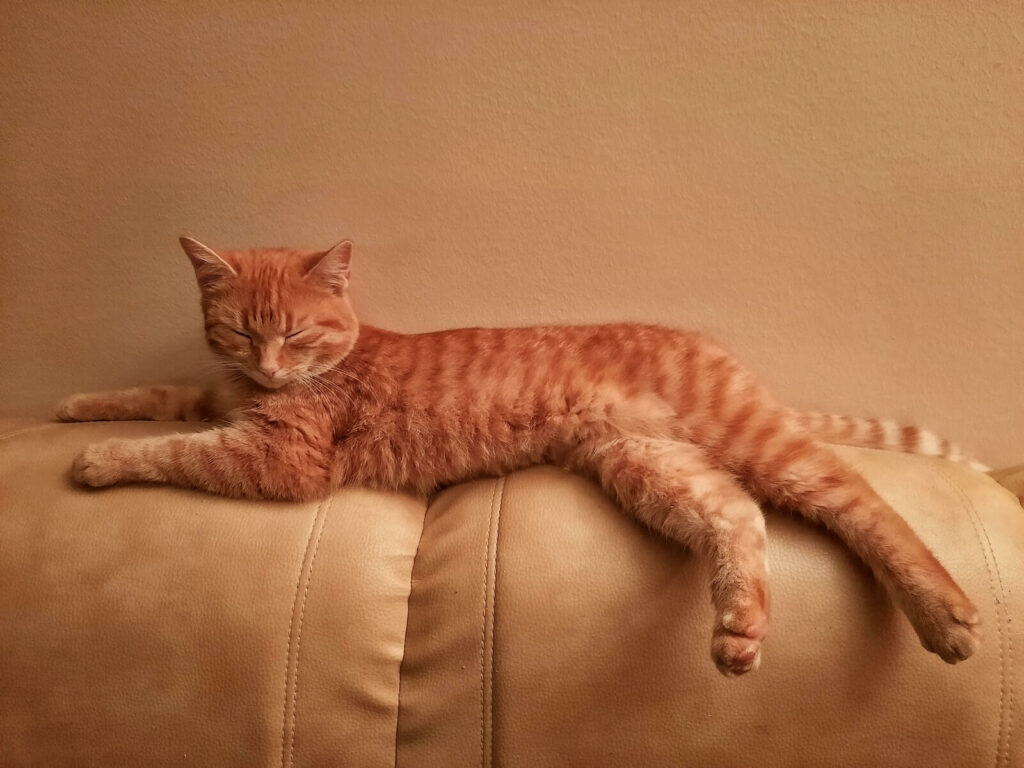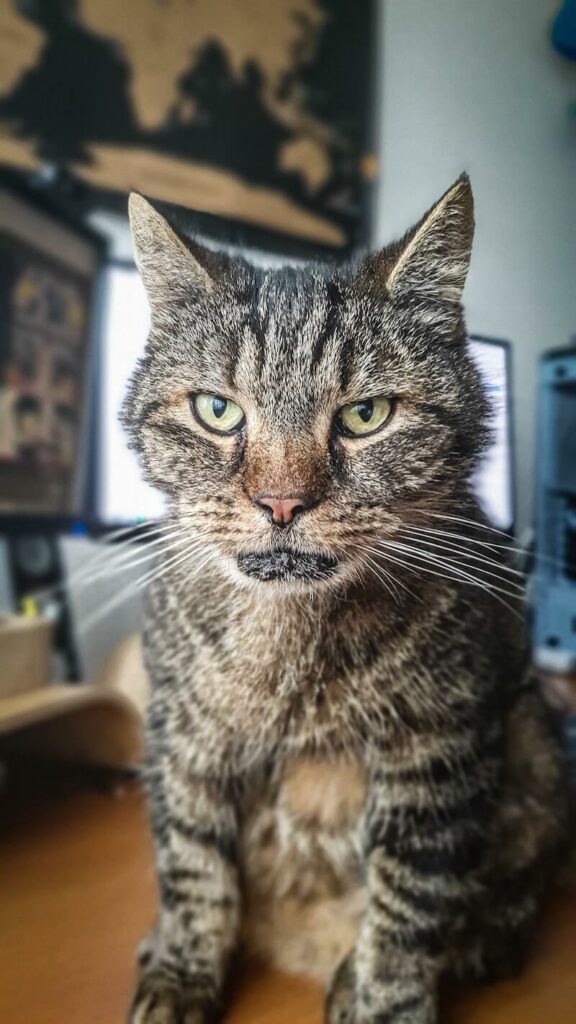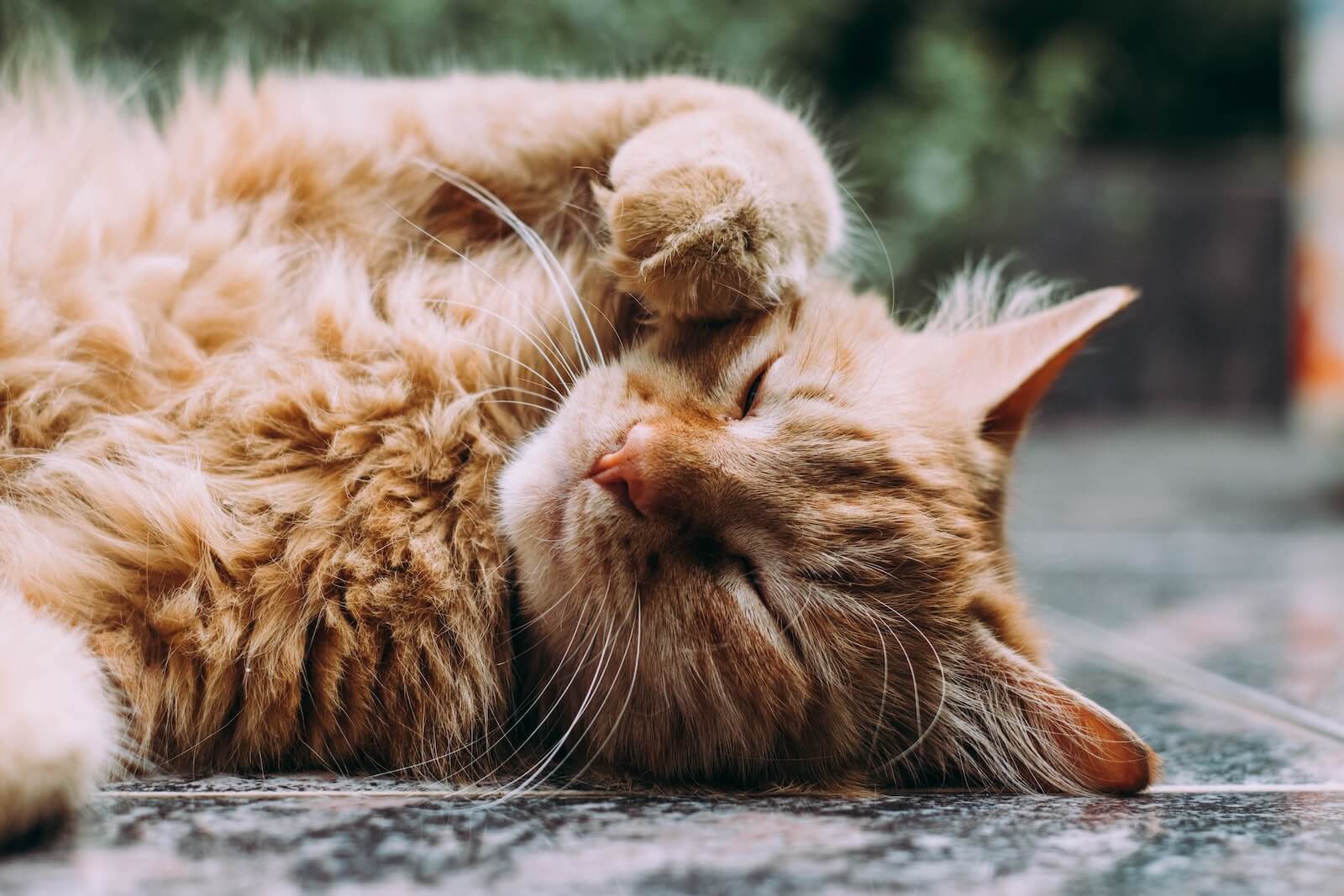Can you imagine if your cat wasn’t able to meow or purr? Not at all, right? These basic sounds are essential because they are one of the most effective forms of communication that our feline friends have.
When we adopt a pet, we become responsible for its well-being. We must know how cats communicate with us and what those lovely sounds mean. It can be pretty interesting to learn why cats purr, but even more attractive to understand why they don’t.
That characteristic sound that cats produce almost from birth has a lot of mystery. There is no proven reason for why your cat purrs, and less is known of why they don’t, but here is what experts have deduced about it.
First things first. How do cats purr?
Several theories explain how cats purr, but the most accepted is the one that demonstrates that sound is produced when the larynx muscles expand and contract the glottis. And although there is no confirmed explanation, it is known how cats can benefit from their purr: thanks to serotonin and the vibrations they produce!
When the cat’s body vibrates, it produces serotonin, known as the happiness hormone. Serotonin has a positive impact on your furry friend’s mood and general state of the body. It even helps them relieve pain.
But wait, there are more amazing benefits! The vibrational frequency of the purr (between 20 to 150 vibrations per second) helps stimulate the muscles and bones in their body, promoting healing and toning. Can you believe it? It’s like having an integrated massage chair!
Reasons for purring
During their first days of life, cats are blind and deaf. At this stage, purring is essential. Through the vibrations, the kittens can locate their mother quickly. When cats grow up, they learn to use purring to communicate with other cats and their human family, just like their mother did.
When purring, cats can display different modalities: more significant or lesser intensity and different speeds. Depending on this, every purr will have different meanings, from showing affection to demanding food or comforting themselves in stressful situations.
If your cat is not purring, don’t worry, it is not a sign of unhappiness. You’ll be surprised to hear that some cats don’t purr, which is normal.
And now, the million-dollar question:
Why doesn’t my cat purr?
Here are the main reasons why cats don’t purr:
Your cat prefers a different communication method
As simple as it may sound, your cat prefers other ways to communicate with you and other pets. Maybe your cat finds meowing to be more effective. Like humans, each cat has their personality and, thus, it will be more or less expressive, affectionate, independent, and friendly.
If your cat doesn’t purr, learn to identify its many other signals.
Your cat is stressed
Cats are very susceptible to changes, so they get stressed quickly. If your cat is stressed or scared, you will notice a change in its behavior. It will most likely stop purring and show other pronounced signs such as hiding, being nervous, dilating pupils, excessive grooming, marking, or scratching. If this is the case, figure out the problem and try to fix it.

Your cat is injured
If your kitty comes down with diarrhea or vomit, it is understandable that they don’t feel like purring. Yet you must pay attention because if your cat is the champion of purring and stops out of nowhere, they may have an injury such as a fracture or a broken tooth. It is also possible that they have caught an infection in their upper respiratory tract, which can cause pain, making them unable to purr.
If this is the unfortunate case, you already know what to do. It’s time to visit the vet.
Your cat is growing old
In this tender stage of life, everything changes. If your furry friend loved to purr, but they stopped, that could be because with age, cats become more docile and quiet, which means they rarely purr, or the sound they make is lower.

On the other hand, if your cat never purred and now they start doing so, this could mean two things, either they seek your attention and more cuddles, or they are not feeling well enough.
At this stage, it is even more important to be aware of your cat’s behavior and provide good nutrition and a comfortable home.
Your cat is a feral feline
It is unlikely you will have a feral feline, but you could have one whose mother was. Since wild cats have to be more careful, mama cats discourage purring in their kittens. This way, they can prevent a predator attack.
Studies show that domesticated cats have more developed vocal cords because of the constant communication with their owners, while feral cats have no interest in interacting with humans.
And last but not least
Perhaps your cat purrs, but it does so at an almost inaudible level. If you have this type of silent ninja cat, press your ear to their body, and you will feel the pleasant vibration they produce.
Enough of that. Now let’s analyze our behavior. Why do we like it?
The rhythmic purr of cats has a hypnotizing effect for many people, and this is because of the benefits it represents. The sound and feel are soothing, and it is proven that, just like with cats, it helps us relieve stress and muscle tension. Having a purring cat by your side can even help you overcome depression!
And, of course, the sweet purr comforts us because it makes us think that our cat is happy.
The bottom line: Why doesn’t my cat purr?
There you have it.
If your cat doesn’t purr, don’t fret! There could be several reasons why. Maybe he prefers other methods of communication, or perhaps he’s just a bit stressed. However, it’s always best to consult your vet if you’re concerned. And remember, even if your kitty doesn’t purr, there are plenty of other ways to enjoy quality time together.
